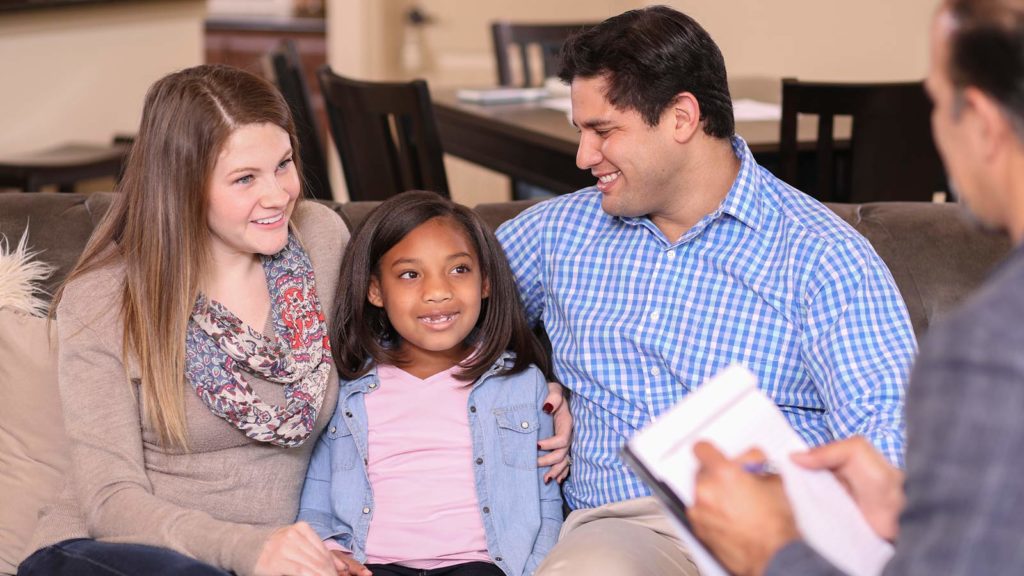Our brothers and sisters form our most enduring relationships in life — whether that bond comes through birth, marriage or adoption.
Parents know that fostering a positive relationship between brothers and sisters — and encouraging sibling support — involves managing a complex relationship that is filled with love, loyalty, strife, competition and friendship. Embracing the ways that siblings are both alike and different will help parents foster both individuality and family unity.
Preparing for New Siblings
Children benefit when parents prepare them for a new sibling, such as those gained through adoption. This preparation happens both before and after new children enter the family. Preparation can include having ongoing talks with children about their expectations, fears and anxiety related to a new sibling, as well as involving them in activities such as preparing the new child’s bedroom and deciding which toys or games to share. Parents should also make sure their child has attention from other caring adults, including family members or friends, when they are focused on helping the new sibling adjust to the home.
The advantage of growing up with siblings is that you become very good at fractions!
Robert Brault
When talking to existing siblings about their fears and concerns, be curious and open. Often children will surprise you with their unique worries and fears. Reassure siblings with your words and actions that they will continue to receive your individual attention, but also let them know that this attention may look different because your family is now larger. Praise children when they show patience when you are stretched.
Managing Regression in Younger Siblings
When new younger children enter the family, older siblings often regress even though they were enthusiastic about having a younger brother or sister. Regression might take the form of children acting unusually less mature, being very clingy and showing increased separation anxiety, demanding more attention than usual, or testing previous limits at home.
If it appears that these new behaviors are in reaction to the new sibling, let the child know you see their behavior and provide reassurance that they will continue to get attention from you. This regressed behavior may take weeks or months to resolve. Let your older child know that you see their efforts when they are making a more mature adjustment to the new sibling. Also, remember that each child will have their own timeline on making a positive adjustment to their new brother or sister.

Check out additional parenting resources!
View our expanded list of recommended parenting websites, books and other resources organized by topic.
Building Sibling Support
All parents want to build strong sibling relationships and support. Siblings from the same biological parents may have the same genetic roots, but their life experiences vary. As brothers and sisters grow older, these life experiences shape them into unique people whose life paths may be divergent. Don’t assume that siblings have the same interests, talents or goals. A healthy family can have a wide range of abilities and aspirations. Siblings formed through adoption, divorce or second marriages have different life experiences that must be merged when they join in one family. Give new siblings time to adjust to each other and listen to their concerns. Show understanding to your child that “re-formulating” a family is complex and will take effort and time.
Developing Boundaries & Communication Strategies
Sibling conflicts can be exhausting for parents, but they also can be areas for tremendous growth. When children resolve conflicts, it helps them prepare for relationships outside of the family. They learn about setting boundaries, being assertive, negotiating for what they want and effective ways to communicate their needs. These are all important life skills needed in settings beyond the family.
When helping your children resolve conflicts, remember that you are also teaching them lifelong negotiation skills. Older siblings often need help accommodating the needs of their younger siblings, and younger children need lessons from parents on how to be assertive and get their needs met through negotiation and persuasion. You can coach older children by taking them aside, talking to them in private about the behavior of their younger sibling, and then coaching them into being more accommodating while still getting what they want.
Often, the root of many sibling conflicts is related to the fact that there are different expectations and rules for children of different ages.
For children who have a sibling with a disability or developmental delay, it’s important to explain (in terms that children can understand) the nature of the disability and how that impacts behavior. All children need to learn respect and kindness, but children with a disability may need more time, practice and coaching to acquire these skills. It is worthwhile to note that siblings who have a brother or sister with a disability often show increased patience and kindness and, as adults, frequently enter supportive professions such as physical therapy, social work or teaching.
Often, the root of many sibling conflicts is related to the fact that there are different expectations and rules for children of different ages. But this fact can be frustrating for children. Parents can help children understand that with siblings “fair” is not always “equal.” This lesson will have to be repeated often and in many different settings to take hold. Older children may have more privileges and different rules set by the parents, and younger children will have to demonstrate patience until they reach a similar age.
As parents become more experienced at parenting, they will also refine their family rules and sibling expectations. This process should be explained to siblings and will help show children that parents and children are growing together in ways to get along. When arguments among siblings become aggressive or violent, intervene quickly and help children get back to a calm place, then lead them in resolving the conflict with words not fists. If one sibling is often dominating or ridiculing another, get involved in trying to find the root of this pattern, set clearer home rules to limit abusive behavior or seek outside help.

Receive Post Adoption Coaching & Education
All parents encounter challenges as their children grow up. And sometimes, issues may arise that leave you uncertain as to how best to respond. But not every issue requires therapy or counseling. The PACE program is here to help during those times.


